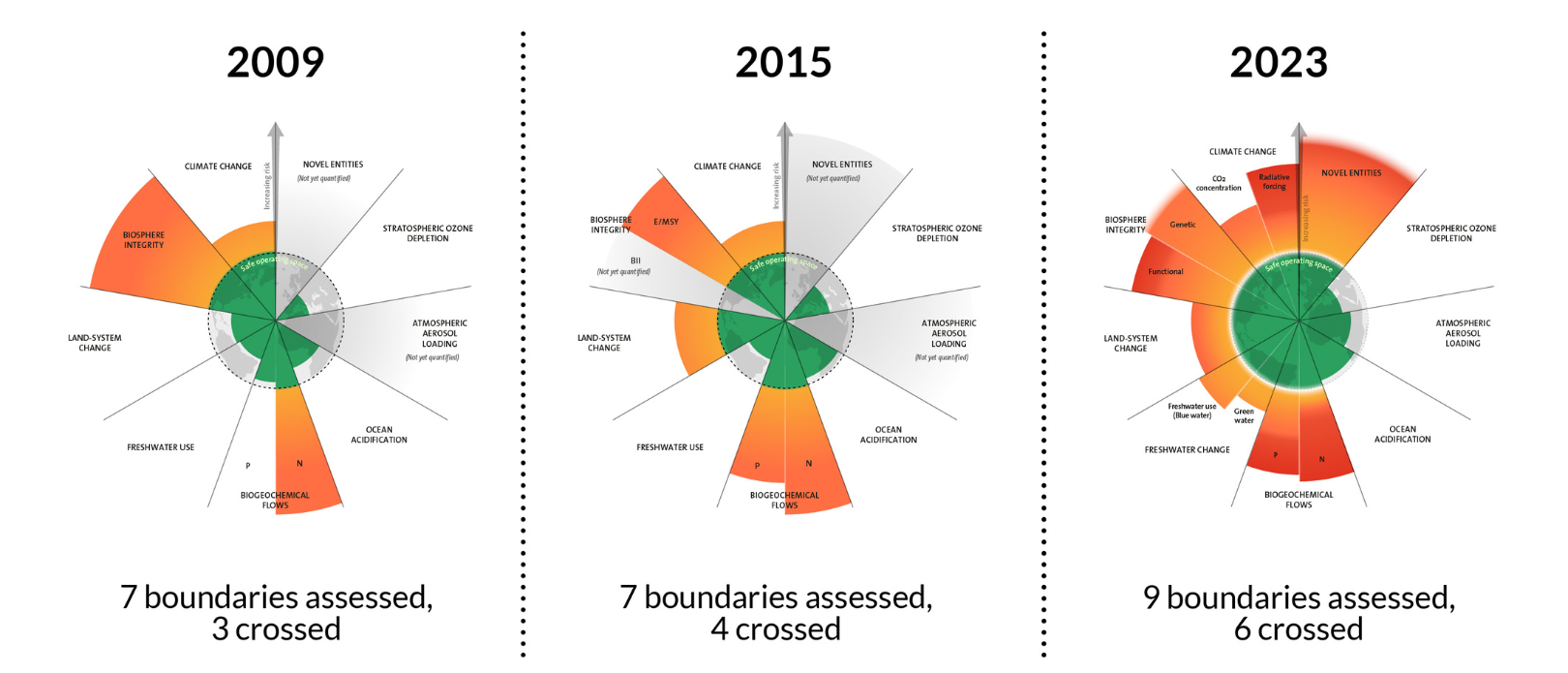Problem
The U.S. Constitution was written at the dawn of the industrial era and did not anticipate major ecological destruction caused by industrialism. However, ecological problems were experienced and anticipated as early as the mid to late 1800s (see Jarrige and Le Roux 2020). We have now reached the point where imminent ecological catastrophe is unfolding in front of our eyes. The biggest concern is crossing planetary thresholds: the essential preconditions for any life on our planet. While the U.S. has the EPA (Environmental Protection Agency), it is only an agency under the Executive branch that has little legislative authorization and no Constitutional authorization whatsoever, and is therefore powerless to act as dramatically and effectively as necessary.
The Yale Environmental Performance Index ranked America as 34th of 182 nations it evaluated on environmental performance, which is an abysmal score for such a large and influential country.

Solution
The 29th Amendment provides comprehensive law to save the planet as much as possible within the context of the United States legal system. It first provides guiding principles, and then fleshes out what they specifically must mean (at minimum), and finally, requires minimal, specific acts of legislation pursuant of the Amendment to ensure that Congress does not submit to the oil industry and other parties with a conflict of interest in preserving planetary life.
The Text of the 29th Amendment
Section 1. Fundamental Principles
In recognition of the critical interdependence between sentient life, ecosystems, and the rest of the environment, the government shall establish policies, procedures, and programs characterized by respect for life, especially life that is capable of suffering, critical to ecosystems, and essential for planetary survival. The central ecological principles that recognize and uphold this respect and form the basis of this Amendment shall be the following:
- Precaution and Prevention: anticipating, assessing, and mitigating environmental risks before they result in substantial or irreversible environmental harm;
- Resiliency: ensuring that systems and communities are robust and adaptable to environmental changes and disruptions, such as natural disasters, climate change impact, and ecological catastrophe;
- Conservation: Careful, strategic management and preservation of ecosystems, wildlife, and habitats, with the aim of preventing overexploitation and environmental degradation;
- Sustainability: meeting the needs of the present without compromising the ability of future generations to meet their own needs;
- Circularity: designing waste out of the life cycle of products, eliminating the use of toxic chemicals, and restoring energy and materials that are consumed;
- Regeneration: restoring, renewing, and revitalizing natural ecosystems and biodiversity to ensure their health, resilience, and sustainability for future generations;
- Biodiversity: preserving, enhancing, and managing the varieties of life on Earth to ensure ecological balance, resilience, and the health of natural environments;
- Equity: ensuring that environmental policies and practices do not disproportionately impact marginalized or vulnerable communities;
- Moral Generosity: extending moral consideration to beings beyond one’s immediate group or species, including the interests, welfare, and/or rights of all sentient life and the ecological systems they inhabit, and also recognizing the unique responsibility of human beings and any higher intelligence in protecting and overseeing the welfare of less sentient, less intelligent, or less competent beings.
Section 2. Minimum Applications
The above principles support, at minimum, legislation for responsible management of natural resources; clean renewable energy; organic food production and food sovereignty; permaculture development; regenerative agriculture; urban green areas; sustainable animal husbandry practices; animal welfare and wildlife preserves; reduction of adverse environmental impact across all sectors of biological and ecological activity; ecosystem integrity and restoration; environmentally-sound public transportation in cities, states or regions, and between states or regions; reliable, efficient, and geographically-decentralized indoor farming; and collaboration with first-nations/indigenous peoples and local communities, recognizing the value of traditional and holistic ecological knowledge in addition to the most recent scientific knowledge.
Section 3. Democratic Environmental Governance
The government shall ensure regular opportunities for the active participation of citizens in environmental decision-making processes. Environmental impact assessments shall be mandatory for major projects, commercial and residential construction, agriculture, technological development, food production, government action, and other human activities, to foster transparency, public engagement, and accountability in all environmental matters.
Section 4. Environmental Education and Awareness
The government shall promote environmental education at all levels of society, and subsidize university research and job training in ecology, conservation biology, wildlife biology and animal rights, environmental science and engineering, ecological and cooperative economics, oceanography, climate science, ecotoxicology, urban ecology, hydrology, and related fields.
Section 5. International Collaboration and Defense Implementation
The government shall actively engage in international efforts to address global environmental challenges, and collaborate with other peoples and political entities in establishing, updating, and enforcing just international agreements on Section 1 Principles. The government shall not steal or unfairly acquire natural resources from other countries or peoples; shall not coerce other countries or peoples to sell or give up their natural resources; and shall not sanction other countries solely for refusing to engage in resource trade. Furthermore, the military and defense forces shall reduce its adverse environmental impact by pursuing policies of diplomacy, minimal intervention, and technologies aligned with this Amendment.
Section 6. Implementation Schedule
This Amendment shall be effective upon approval. To be in compliance of this Amendment, the government must pass legislation within ninety (90) days of approval that fulfill the following requirements: (a) an immediate and permanent cessation of subsidies and government supports for the fossil fuel industry; (b) fixed deadlines for phasing out coal and petroleum based energy with deadlines no greater than twelve (12) years; (c) graduated penalties for air, water, and soil pollution; (d) a permanent ban on the sale, import, export, and production of non-organic produce and of commercial agricultural herbicides and pesticides effective within six (6) years; (e) mandatory composting, and mandatory recycling for all scarce, harmful, and other materials deemed environmentally toxic or precious; (f) a requirement for all new residential and commercial construction to implement geothermal heating/cooling and green-roofs or roofs with high solar reflection, where possible; (g) initial draft plans to create an intra-state and inter-state high-speed (500+km/hr) land-based public transportation system created and operated according to the principles in this Amendment, and shall be subsidized to ensure public affordability. Congress members that fail to pass such laws within the required time limit shall be disqualified from re-election in any government office, subject to removal within twelve (12) days, and required to serve at least three (3) years of rehabilitative incarceration for violating the Constitution and threatening the well-being of the biosphere.
